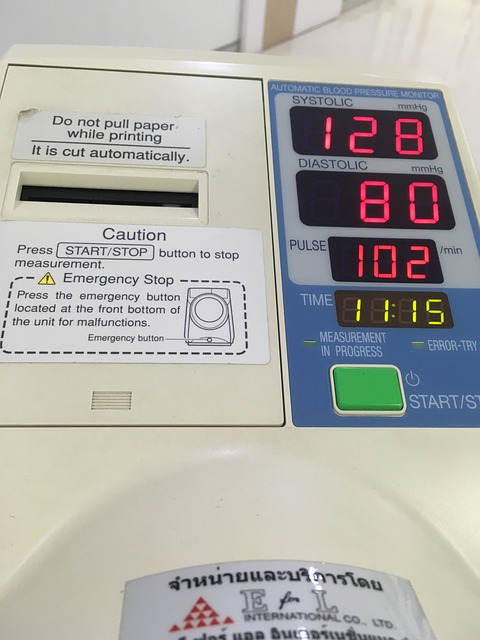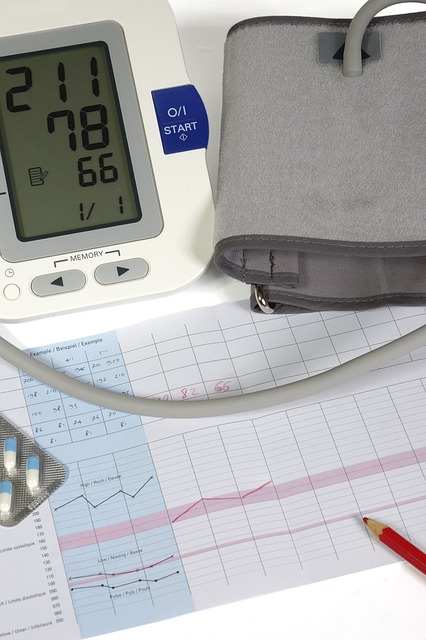The Well Person Blood Test (WPBT) available in the UK is a comprehensive health assessment tool that uses a single blood sample to provide early insights into one's overall well-being, including liver function. This test measures key markers such as enzymes ALT and AST, proteins like albumin and globulin, serum bilirubin, and coagulation factors PT/INR, aiding in the detection and management of conditions like hepatitis, cirrhosis, and liver cancer. The WPBT is an integral part of the UK's preventative healthcare strategy, offering non-invasive evaluation of kidney function, cholesterol levels, diabetes risk, and nutritional status. It empowers individuals with information to make informed health decisions, aligning with the UK's commitment to healthcare innovation and proactive health care measures. The test provides a detailed picture of liver health through routine liver function tests, which are crucial for monitoring chronic liver diseases and guiding personalized treatment plans. Healthcare professionals rely on these tests to initiate timely interventions, conduct further investigations, and tailor treatments based on individual patient needs, thereby improving health outcomes and enhancing quality of life. The WPBT's role in the UK healthcare system underscores its significance as a tool for preventative medicine and early disease detection.
The Well Person Blood Test UK stands as a pivotal tool in proactive health management, offering insightful data that enables medical professionals to detect and address health issues early. This article delves into the essential role of liver function tests within this comprehensive screening, revealing how each component provides vital clues about an individual’s hepatic health. Understanding these tests empowers healthcare providers to interpret results accurately, leading to informed decision-making and effective patient care. Through a detailed examination of the test’s components and their significance, we uncover the intricacies of liver function assessment, highlighting its importance in maintaining overall well-being.
- Comprehensive Overview of the Well Person Blood Test UK: A Gateway to Proactive Health Management
- Understanding the Components of a Well Person Blood Test: What Each Measurement Reveals About Liver Function
- Interpreting Results and Making Informed Medical Decisions Based on Liver Function Test Data
Comprehensive Overview of the Well Person Blood Test UK: A Gateway to Proactive Health Management

The Well Person Blood Test (WPBT) in the UK offers individuals a proactive approach to health management by providing a comprehensive overview of one’s wellbeing through a simple blood sample. This test is designed to screen for a wide array of potential health issues, including liver function. It is an essential diagnostic tool that enables medical professionals to detect abnormalities or signs of disease in their early stages, facilitating timely interventions that can significantly improve patient outcomes. The WPBT measures key parameters such as liver enzymes, bilirubin, proteins, and clotting factors, which collectively provide insights into the liver’s health status. By identifying potential liver dysfunction or disease, healthcare providers can initiate tailored treatment plans, monitor existing conditions, or reassure patients of their liver health. This test is integral for individuals seeking a holistic understanding of their bodily functions and is a pivotal component in the UK’s preventative healthcare strategy.
Incorporating the Well Person Blood Test as part of one’s regular health check-up regimen can be instrumental in detecting subtle changes indicative of liver conditions, such as hepatitis or cirrhosis. It is a non-invasive and efficient method for early diagnosis, which aligns with the UK’s focus on proactive healthcare. The test’s broad scope extends beyond liver function, offering insights into other critical health markers like kidney function, cholesterol levels, diabetes risk, and general nutritional status. This comprehensive analysis empowers individuals to take charge of their health, allowing for informed decisions about lifestyle modifications or further medical investigations. It is a testament to the UK’s commitment to healthcare innovation and the promotion of preventative care, offering citizens a valuable tool in the maintenance of their health and wellbeing.
Understanding the Components of a Well Person Blood Test: What Each Measurement Reveals About Liver Function

A well person blood test, often referred to as a health check or screen, is a routine procedure in the UK that provides valuable insights into an individual’s overall health status, including liver function. This comprehensive analysis encompasses several key components that collectively offer a detailed picture of liver health. One of the primary measurements in such a test is the Liver Function Tests (LFTs) which include assessments of alanine aminotransferase (ALT), aspartate aminotransferase (AST), alkaline phosphatase (ALP), and gamma-glutamyl transferase (GGT). These enzymes are naturally present in the liver but are only detectable in the blood when liver cells are damaged. Elevated levels of these enzymes can indicate hepatocellular injury or bile duct problems.
Furthermore, the test also measures total protein, albumin, and globulin to evaluate the liver’s synthetic function. The serum bilirubin level is another critical measurement that reflects the liver’s ability to process waste products from red blood cells. Additionally, prothrombin time (PT) or international normalized ratio (INR) assesses the liver’s production of coagulation factors. These measurements collectively provide medical professionals with a comprehensive understanding of liver function and can aid in the early detection and management of liver diseases such as hepatitis, cirrhosis, and liver cancer. Understanding these components is crucial for individuals undergoing a well person blood test in the UK to ensure they receive a thorough health assessment and appropriate follow-up care if needed.
Interpreting Results and Making Informed Medical Decisions Based on Liver Function Test Data

Routine liver function tests, often included in a well person blood test in the UK, provide insightful data on liver health by measuring enzymes, proteins, and substances like bilirubin. For medical professionals, interpreting these results requires an understanding of normal reference ranges and the clinical context of the patient’s presentation. For instance, elevated levels of alanine aminotransferase (ALT) and aspartate aminotransferase (AST) can indicate liver inflammation or damage, while gamma-glutamyl transferase (GGT) elevations may point to bile duct problems. Alkaline phosphatase (ALP) levels can also be a marker for bone and liver disorders, necessitating a careful evaluation of the patient’s symptoms and medical history to pinpoint the underlying cause.
The interpretation of these tests is dynamic; results must be considered alongside other clinical findings, such as imaging studies or endoscopic examinations, to form a comprehensive picture of liver health. Additionally, trends over time are critical in managing chronic liver conditions like hepatitis or cirrhosis. By leveraging the data from well person blood tests UK, healthcare providers can initiate timely interventions or further investigations, thereby enhancing patient outcomes and guiding personalized treatment plans. Medical professionals must also consider other factors such as medication effects, dietary influences, and comorbidities that could affect liver enzyme levels, ensuring a nuanced approach to patient care. Accurate interpretation of liver function tests is not just about identifying disease but also about monitoring response to therapy, adjusting treatment protocols accordingly, and ultimately improving the quality of life for patients with liver conditions.
In conclusion, the Well Person Blood Test UK serves as an invaluable tool for medical professionals in monitoring and evaluating liver health proactively. By understanding each component of this test, healthcare providers can interpret results with precision, enabling them to make informed decisions that optimize patient outcomes. The insights gleaned from these tests facilitate early intervention and support the management of chronic liver conditions. As such, the Well Person Blood Test UK plays a pivotal role in the preventive healthcare strategy, underscoring the importance of regular health screenings for maintaining liver function and overall well-being. Medical professionals are encouraged to utilize this comprehensive overview and its detailed examination of test components to enhance their diagnostic capabilities and contribute to the advancement of proactive health management within the UK.
